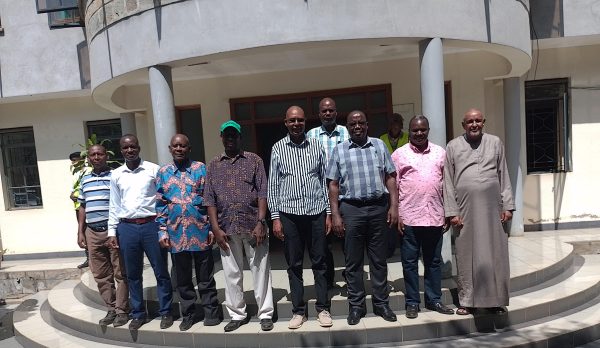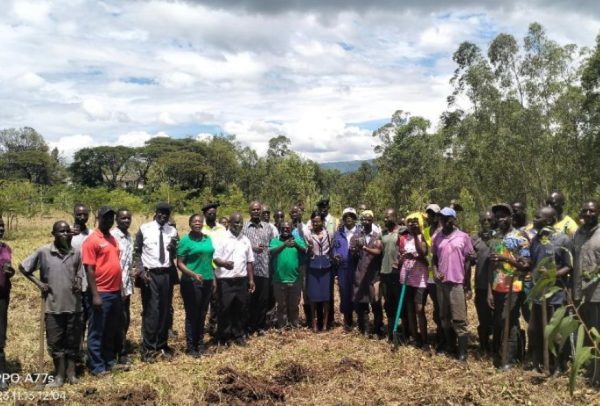Overview
Finance department’s role is to mobilize, conserve, and prudently apply financial resources to enable the Company consistently discharge its mandate. The department ensures effective planning and control of financial resources. This involves:
- Controlling costs while supporting capacity optimisation
- Strengthening revenue generation capacity of other revenue streams
- Securing and utilising credit facilities
- Long-term debt restructuring
Functions
- Coordinating the preparation of annual budget and cost management; Maintaining fixed assets register; Preparing management accounts and annual financial statements.
- Collecting revenues and maintaining debtor’s ledger; Maintaining creditors ledger and processing supplier payments; Maintaining payroll and originating statutory payments; Processing cheques and handling cash.
- Maintaining cane creditors ledger and processing cane payments; Maintaining out-growers’ services and loans ledgers; Accounting for nucleus estate farm operations and valuing growing cane; Maintaining Nucleus Estate creditors’ ledger and processing Nucleus Estate contractors’ payments.
- Availing business systems to authorized users, maintaining servers, databases, and backups; providing user support and ensuring LAN, Internet, and telephone connectivity; supporting email and intranet users.
- Receiving finished product from Factory for safe storage; Issuing and invoicing goods sold/released; Reporting on stock movement and balance held; Undertaking monthly physical stock count and reconciliation.
Mission of the Department
To run an efficient financial management system with controls that integrate compliance requirements with customer convenience and guarantees timeliness, relevance, and reliability of output in order to meet management information needs, decision-making needs, and external reporting needs.
Strategic Objective
To establish a strong and sustainable financial base that supports all Company activities. This involves:
- Controlling operating costs to protect sales margins while maximizing utilization of production capacity.
- Strengthening capacity of other revenue streams including Housing, Schools, Medical Centre, and Guesthouse facilities.
- Banking credit facilities
- Supplier credit finance
- Long-term debt restructuring
Departmental Responsibilities
The department comprises a team of Accountants and ICT specialists charged with the professional duty of:
- Guiding Management towards ethically sound financial policies, procedures, and practices that demonstrate financial prudence and promote stakeholder value.
- Developing, reviewing, and implementing accounting systems that meet the changing needs of the Company, match current business best practices, and comply with International Financial Accounting Standards and applicable legislation.
- Developing and implementing risk-based financial management systems that guarantee efficiency of treasury management activities, credit control procedures, and financing decisions;
- Leading the establishment and enforcement of internal financial procedures and controls to safeguard Company financial assets including cash, saleable stocks, and other assets from loss or unauthorized use;
- Developing, reviewing, and implementing a management information system that leverages on appropriate technology available to meet the changing needs of the Company and provide business competitive advantage;
- Leading annual budget preparation and reviewing performance against the budget to ensure prudence in expenditure decisions at all levels of the Company.
- Effecting organizational transactions with stakeholders and maintaining records of financial transactions, assets, and liabilities;
- Preparing monthly, quarterly, and annual financial performance and status reports in accordance with International Financial Reporting Standards and applicable statutory legislation.
Structure and Functions
Head of Finance who reports to the Managing Director heads the department which is subdivided into sections including Management Accounting, Financial Accounting, Agriculture Accounting, Information and Communications Technology, and Product Warehousing Sections.
- Management Accounting: This is headed by the Management Accountant. It coordinates annual budget preparation and cost management; Maintains fixed assets register and accounting; Prepares management accounts and annual financial statements.
- Financial Accounting: This is headed by the Financial Accountant. It collects revenues and maintains debtor’s ledger; Maintains creditors ledger and processes supplier payments; Maintains payroll and originates statutory payments; Processes cheques and handles cash; Reconciles bank accounts.
- Agriculture Accounting: This is headed by the Agriculture Services Accountant. It maintains cane creditors ledger and processes cane payments; Maintains out-growers’ services and loans ledgers; Accounts for nucleus estate farm operations and values growing cane; Maintains NE creditors’ ledger and processes NE contractors’ payments.
- Information and Communications Technology: This is headed by the ICT Manager. It avails business systems to authorized users, maintains servers and databases, and takes backups; provides user support and ensures LAN connectivity; Internet connectivity; telephone connectivity; email intranet; user support.
- Product Warehousing: This is headed by a Stores Officer but is currently overseen by the Financial Accountant. It receives finished product from Factory for safe storage; Issues and invoices goods sold/released; Reports on stock movement and balance held; Undertakes monthly physical stock count and reconciliation.
Management Information System
The Company uses Sun Systems version 6.4, a powerful user-friendly and innovative financial management system comprising of 4 modules namely: financials module, purchasing module, inventory module, and sales module. The Financials module delivers ledger accounting and budget control, corporate allocations, and fixed asset register.
Sun Systems uses a unified ledger system to combine the functions of general ledger, sales ledger, purchases ledger, cash book, and project or other user-defined ledgers. This makes the full impact of any financial posting immediately visible, giving management a clear, real-time view of the business.
Accordingly, the following processes have been computerized with effect from July 2020:
- Purchase ordering, receipting, and payment process,
- Inventory binning and issuance process,
- Sales ordering, picking, and billing process,
- Fixed asset capitalization, depreciation, and disposal process
Plans are underway to upgrade the system to an ERP which incorporates agriculture and production operations.
Stakeholders Payments
Customers
For customer convenience and as a containment measure against Covid-19 disease, our customers and stakeholders are encouraged to use M-pesa Paybill Numbers, while making small payments for various Company goods and services. An official receipt indicating the purpose for payment will be issued from the system for each customer payment.
| M-pesa Paybill No. | Service Centre | Goods & Services |
|---|---|---|
| 4021857 | Cashier’s Office | Sugar, Molasses, Water Charges, House Rent, Imprest Cash Refund by Employees & Miscellaneous services, which are; Hire of Complex Hall, Hire of Chemelil Stadium, Factory Workshop Charges, Field Workshop Charges, Seedcane Charges & Land Preparation Charges |
| 4023437 | Chemelil Medical Centre | Medical Consultation & Services |
| 4023441 | Chemelil Sugar Primary School | School Fees, School Bus Transport, School Lunch & PTA Fees |
| 4023443 | Chemelil Club Guest House | Breakfast, Meals & Accommodation |
The M-pesa payment procedure is highlighted below:
- Select Lipa Na M-pesa on your mobile phone,
- Enter the relevant M-pesa Paybill Number (displayed at Payment Points and Service Centres)
- Enter your Customer Account Number (to be provided at the Service Centre)
- Enter the amount and your M-pesa PIN
All Company employees are paid through the Company payroll and salaries are credited to employees’ respective bank accounts within the first week of the following month.
The Company pays its cane farmers through their respective bank accounts within 30 days of delivering cane to the factory.
The Company pays its suppliers through their respective bank accounts within 60 days of their delivery of goods or services to the Company.
Correspondence
All Company stakeholders are encouraged to use the post office or courier services to dispatch official documents to the Company.





